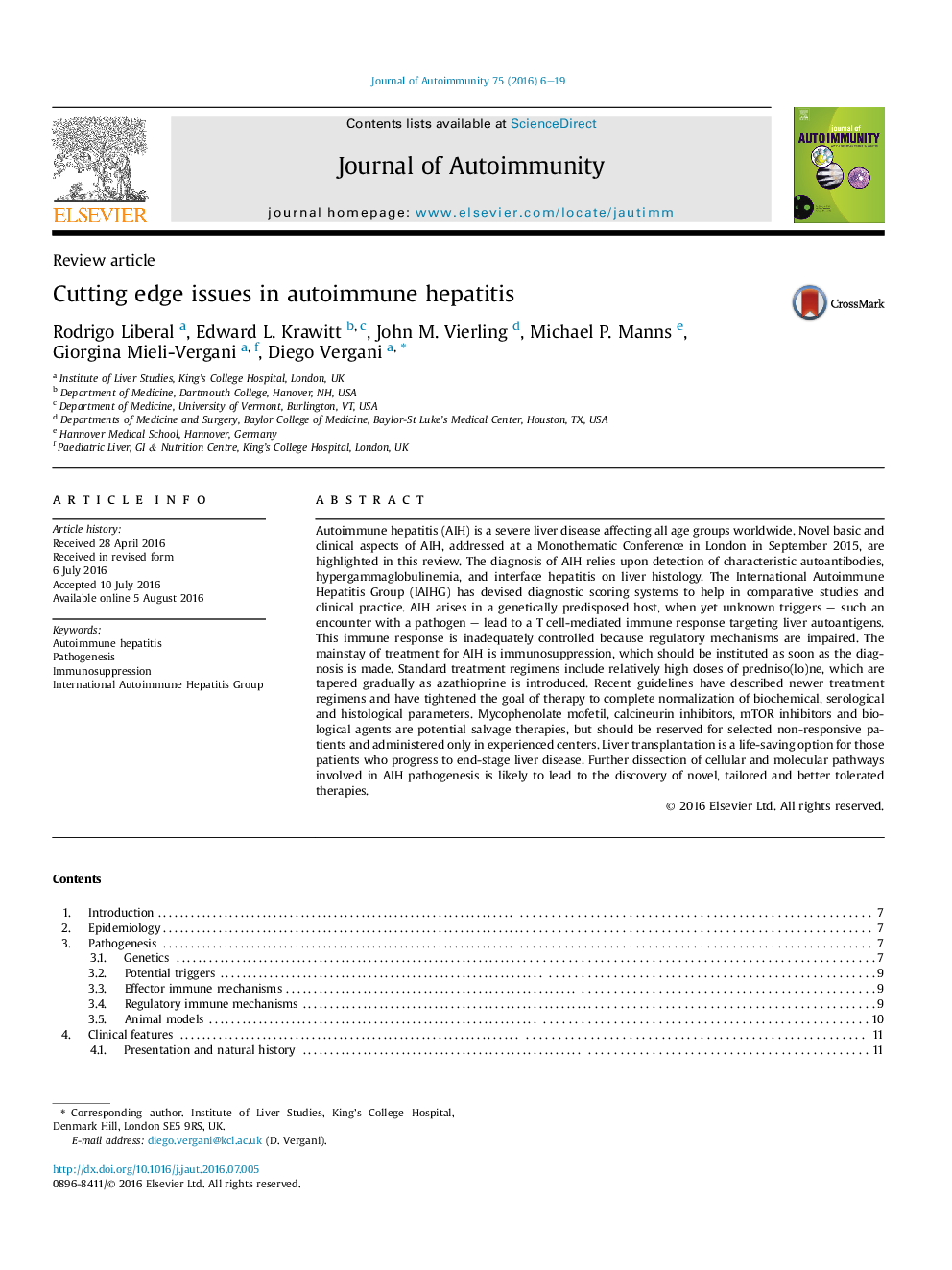| Article ID | Journal | Published Year | Pages | File Type |
|---|---|---|---|---|
| 5667944 | Journal of Autoimmunity | 2016 | 14 Pages |
â¢Key features of AIH are female preponderance, hypergammaglobulinemia, autoantibody positivity, and interface hepatitis.â¢AIH usually responds to steroids ± azathioprine, but treatment is mostly life-long. New therapies are being investigated.â¢An unrestrained T-cell autoimmune attack triggered by an unknown event leads to AIH in genetically predisposed subjects.
Autoimmune hepatitis (AIH) is a severe liver disease affecting all age groups worldwide. Novel basic and clinical aspects of AIH, addressed at a Monothematic Conference in London in September 2015, are highlighted in this review. The diagnosis of AIH relies upon detection of characteristic autoantibodies, hypergammaglobulinemia, and interface hepatitis on liver histology. The International Autoimmune Hepatitis Group (IAIHG) has devised diagnostic scoring systems to help in comparative studies and clinical practice. AIH arises in a genetically predisposed host, when yet unknown triggers - such an encounter with a pathogen - lead to a T cell-mediated immune response targeting liver autoantigens. This immune response is inadequately controlled because regulatory mechanisms are impaired. The mainstay of treatment for AIH is immunosuppression, which should be instituted as soon as the diagnosis is made. Standard treatment regimens include relatively high doses of predniso(lo)ne, which are tapered gradually as azathioprine is introduced. Recent guidelines have described newer treatment regimens and have tightened the goal of therapy to complete normalization of biochemical, serological and histological parameters. Mycophenolate mofetil, calcineurin inhibitors, mTOR inhibitors and biological agents are potential salvage therapies, but should be reserved for selected non-responsive patients and administered only in experienced centers. Liver transplantation is a life-saving option for those patients who progress to end-stage liver disease. Further dissection of cellular and molecular pathways involved in AIH pathogenesis is likely to lead to the discovery of novel, tailored and better tolerated therapies.
